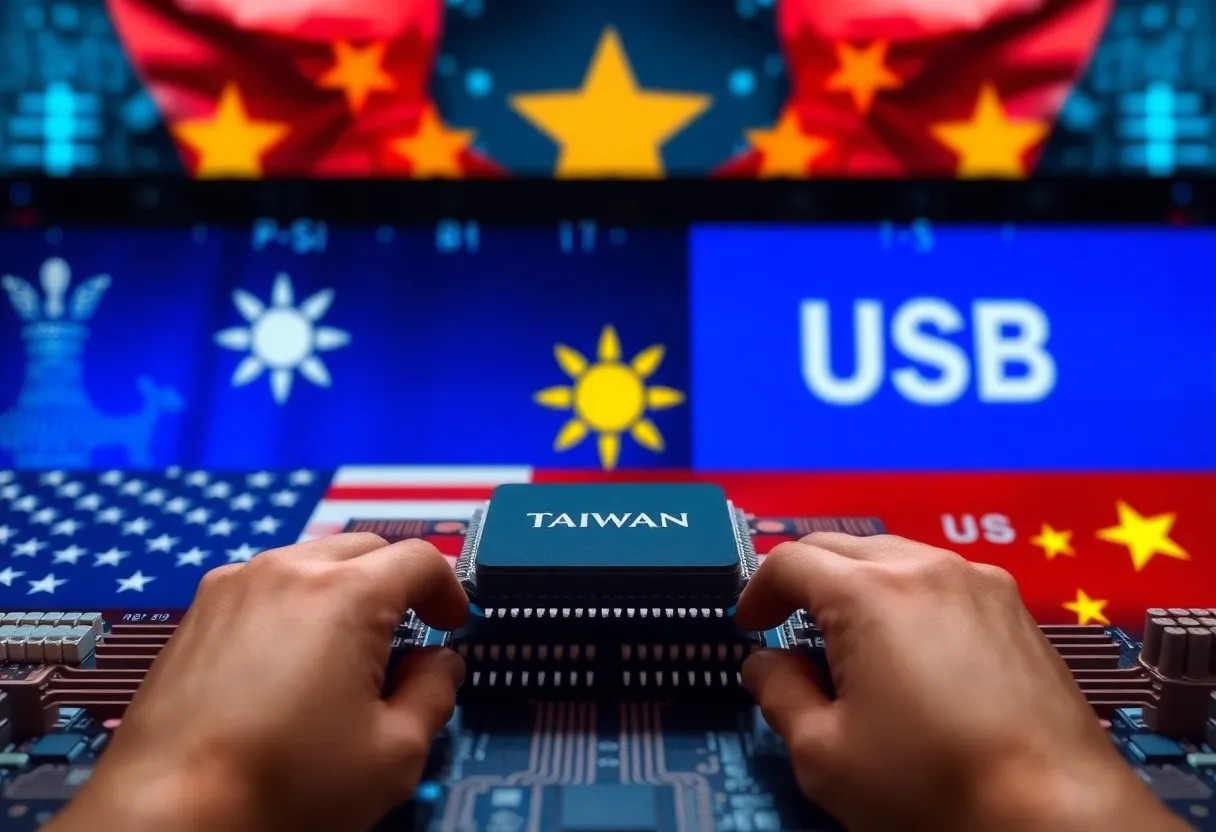News Summary
Taiwan has officially blacklisted Huawei Technologies and Semiconductor Manufacturing International Corp (SMIC), marking a significant expansion of its technology export controls. This decision aligns Taiwan with U.S. efforts to curb Chinese advancements in the semiconductor sector, restricting Taiwanese firms from exporting critical technologies to the blacklisted companies. The move highlights Taiwan’s critical role in the global semiconductor supply chain and reflects growing tensions between the U.S. and China, as well as Taiwan’s commitment to protecting its technological edge.
Taiwan Takes Bold Step in Tech Showdown: Huawei and SMIC Blacklisted
In a decisive move that sends ripples across the global tech landscape, Taiwan has officially added two major Chinese tech giants, Huawei Technologies and Semiconductor Manufacturing International Corp (SMIC), to its export control blacklist. This development marks the most significant broadening of Taiwan’s technology restrictions to date, targeting key players in an ongoing tech rivalry that’s heating up between the U.S. and China.
Aligning with U.S. Interests
So, what does this mean? Essentially, by blacklisting these companies, Taiwan is stepping in line with U.S. strategic efforts aimed at containing Chinese advancements in the semiconductor sector. The International Trade Administration of Taiwan has updated its high-tech commodities entity list, adding a whopping 601 entities from various countries, including China, Pakistan, Iran, and Russia. This highlights a growing stance on Taiwan’s part to safeguard its technological edge and its critical role in the semiconductor supply chain.
The Impact of the Restrictions
Thanks to this blacklist, Taiwanese firms will now need to secure approval from the government before they can export essential semiconductor technologies, manufacturing equipment, or any related materials to the newly blacklisted entities. By cutting off access to its sophisticated chipmaking ecosystem—led by the renowned Taiwan Semiconductor Manufacturing Company (TSMC)—the island nation has effectively thrown a wrench into the works for Huawei and SMIC, both of which are crucial to China’s aspirations of becoming self-sufficient in semiconductors.
Targeting Key Technologies
The restrictions specifically hone in on critical plant construction technologies, materials, and equipment that are vital for the production of AI semiconductors. In light of Huawei and SMIC’s recent advancements in chip technology, including the impressive launch of a 7-nanometer chip in 2023, the blacklisting reflects Taiwan’s strategic positioning amidst escalating tensions.
A Cold War of Technology
This move also underscores Taiwan’s role as a crucial technological ally to the United States, further fragmenting global technology supply chains along geopolitical lines. As many may know, the U.S. has previously imposed sanctions on Huawei and SMIC, limiting their access to certain technologies and markets. Both companies are seen as vital to furthering China’s ambitions, so Taiwan’s actions can be viewed as a reinforcement of the U.S. pushback against China’s rise in the semiconductor industry.
What’s Next?
Now, analysts are weighing in on what this means for the future. While the immediate effects of these new sanctions might appear mild—given that Huawei and SMIC were already grappling with significant restrictions under prior export controls—the blacklisting does have the potential to tighten existing loopholes and limit any collaborations with Taiwanese firms.
A New Era of Tensions
This decision serves as yet another reminder of the growing divide between democratic nations and the technologically rising nation of China. As tensions escalate, it’s clear that Taiwan is positioning itself as a linchpin in this tech cold war, steadfastly aligning itself with U.S. interests while navigating the ever-complicating landscape of global technology.
In a world where tech plays an increasing role in national security and economic power, Taiwan’s actions highlight just how pivotal the semiconductor sector has become. It’s a situation worth keeping an eye on, as developments in this area could shape the tech industry for years to come.
Deeper Dive: News & Info About This Topic
- Tech HQ: Taiwan Blacklists Huawei and SMIC
- SCMP: China Amends Place of Origin to Boost Local Manufacturers
- EE Times: Huang Visits China as NVIDIA Feels the Chip War
- Politico: The Chip War Under Trump
- Encyclopedia Britannica: Semiconductor

Author: STAFF HERE LOS ANGELES WRITER
The LOS ANGELES STAFF WRITER represents the experienced team at HERELosAngeles.com, your go-to source for actionable local news and information in Los Angeles, Los Angeles County, and beyond, specializing in "news you can use" with coverage of product reviews for personal and business needs, local business directories, politics, real estate trends, neighborhood insights, and state news affecting the area—with deep expertise from years of dedicated reporting and strong community input, including local press releases and business updates, while delivering top reporting on high-value events like the Academy Awards, LA Auto Show, and Los Angeles Marathon, extending coverage to key organizations such as the Los Angeles Area Chamber of Commerce and the Los Angeles Tourism & Convention Board, plus leading businesses in entertainment and technology like Warner Bros. and SpaceX, and as part of the broader HERE network including HEREAnaheim.com , HERECostaMesa.com , HEREHuntingtonBeach.com , and HERESantaAna.com , providing comprehensive, credible insights into Southern California's dynamic landscape. HERE Anaheim HERE Beverly Hills HERE Coronado HERE Costa Mesa HERE Hollywood HERE Huntington Beach HERE Long Beach HERE Los Angeles HERE Mission Viejo HERE San Diego HERE Santa Ana





